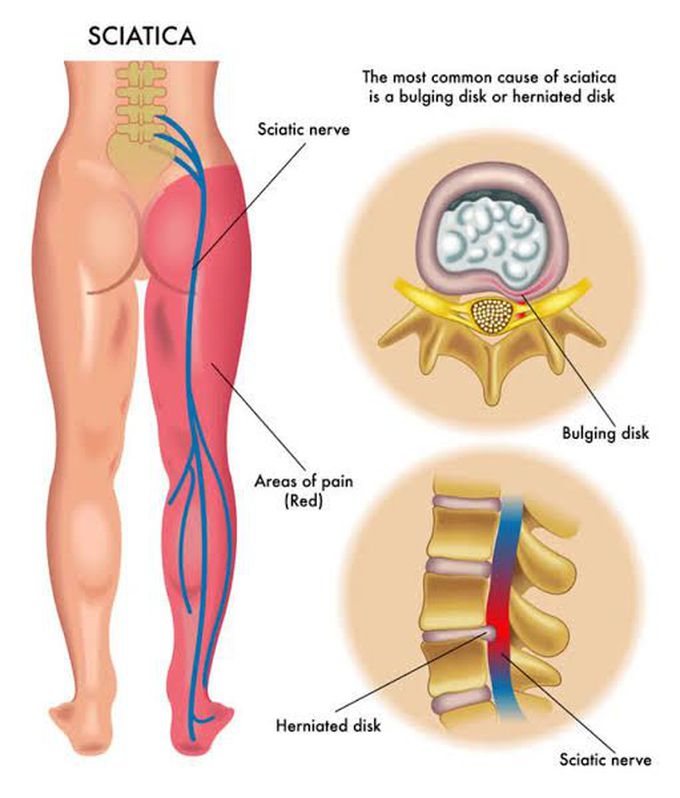


Treatment of sciatica
CT scan MRI X-ray Treatment If your pain doesn't improve with self-care measures, your doctor might suggest some of the following treatments. Medications The types of drugs that might be prescribed for sciatica pain include: Anti-inflammatories Muscle relaxants Narcotics Tricyclic antidepressants Anti-seizure medications Physical therapy Once your acute pain improves, your doctor or a physical therapist can design a rehabilitation program to help you prevent future injuries. This typically includes exercises to correct your posture, strengthen the muscles supporting your back and improve your flexibility. Steroid injections In some cases, your doctor might recommend injection of a corticosteroid medication into the area around the involved nerve root. Corticosteroids help reduce pain by suppressing inflammation around the irritated nerve. The effects usually wear off in a few months. The number of steroid injections you can receive is limited because the risk of serious side effects increases when the injections occur too frequently. Surgery This option is usually reserved for when the compressed nerve causes significant weakness, loss of bowel or bladder control, or when you have pain that progressively worsens or doesn't improve with other therapies. Surgeons can remove the bone spur or the portion of the herniated disk that's pressing on the pinched nerve.

